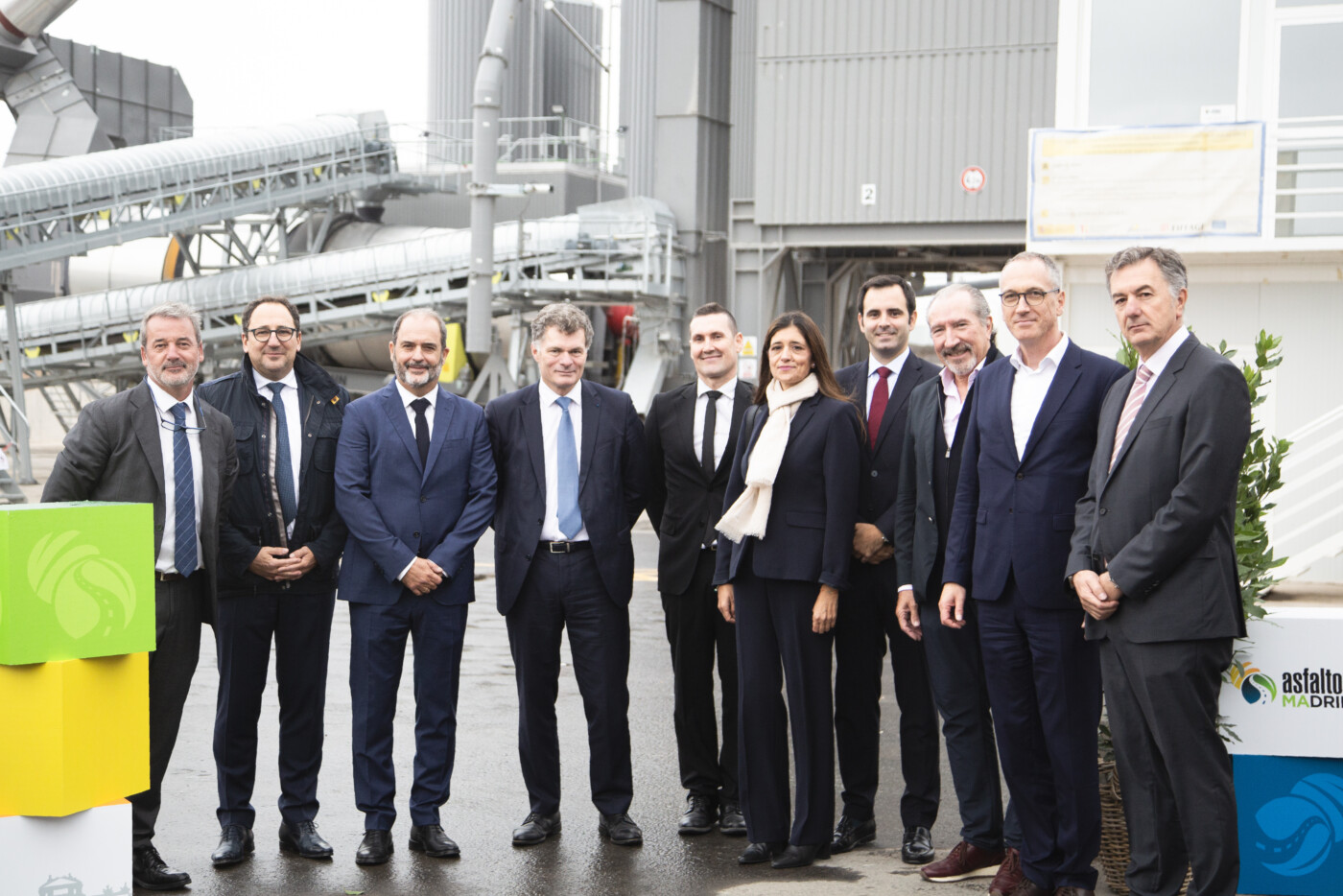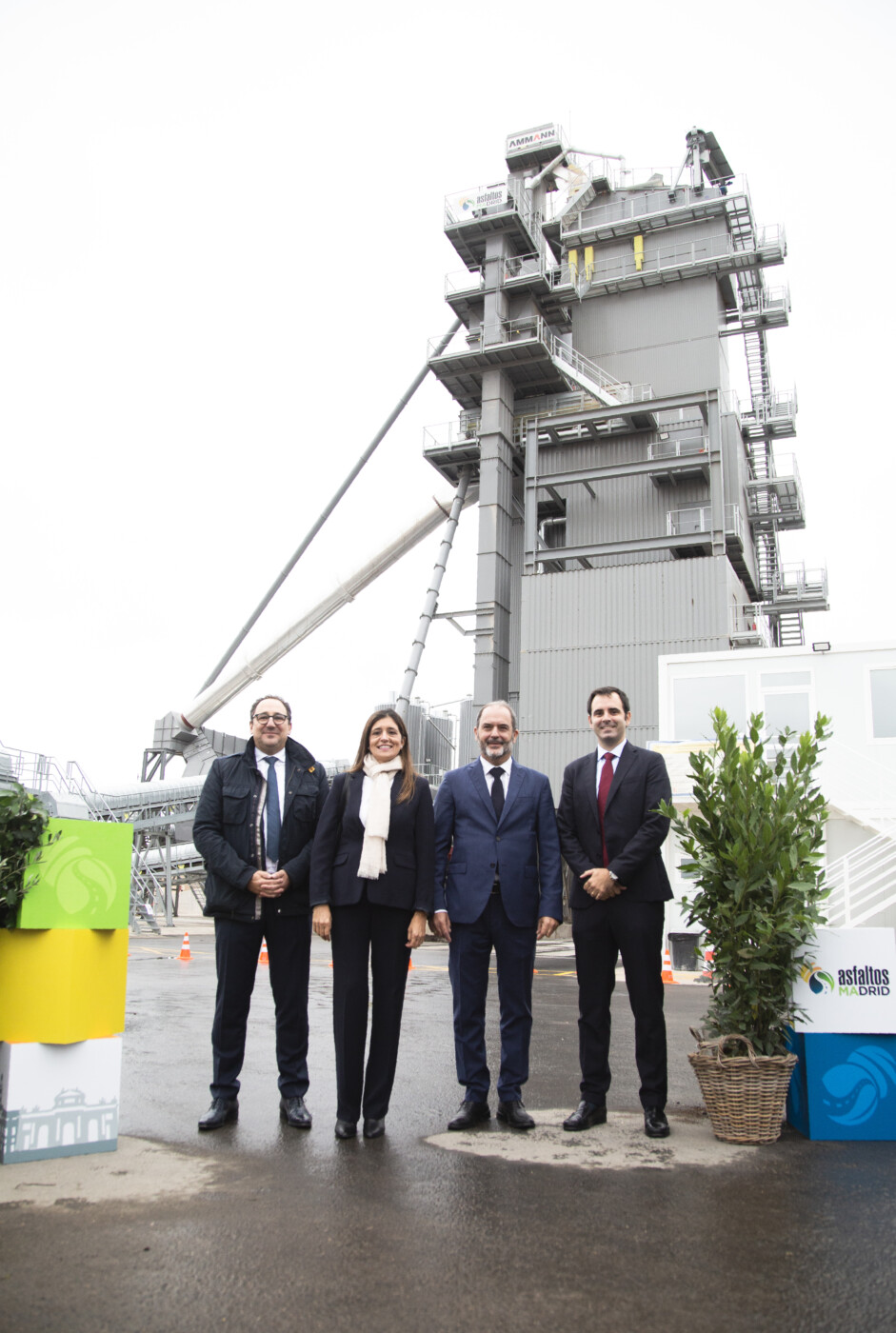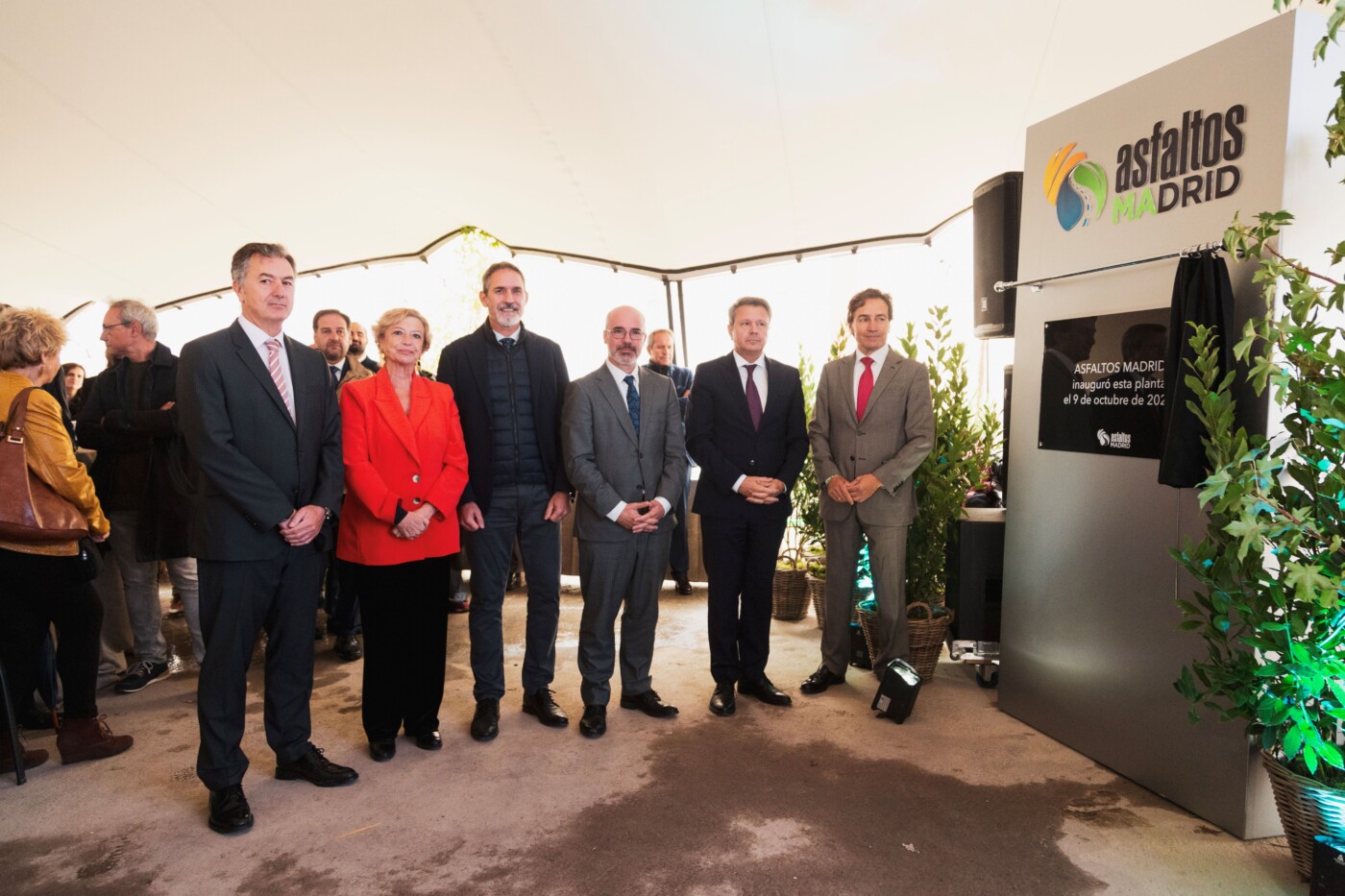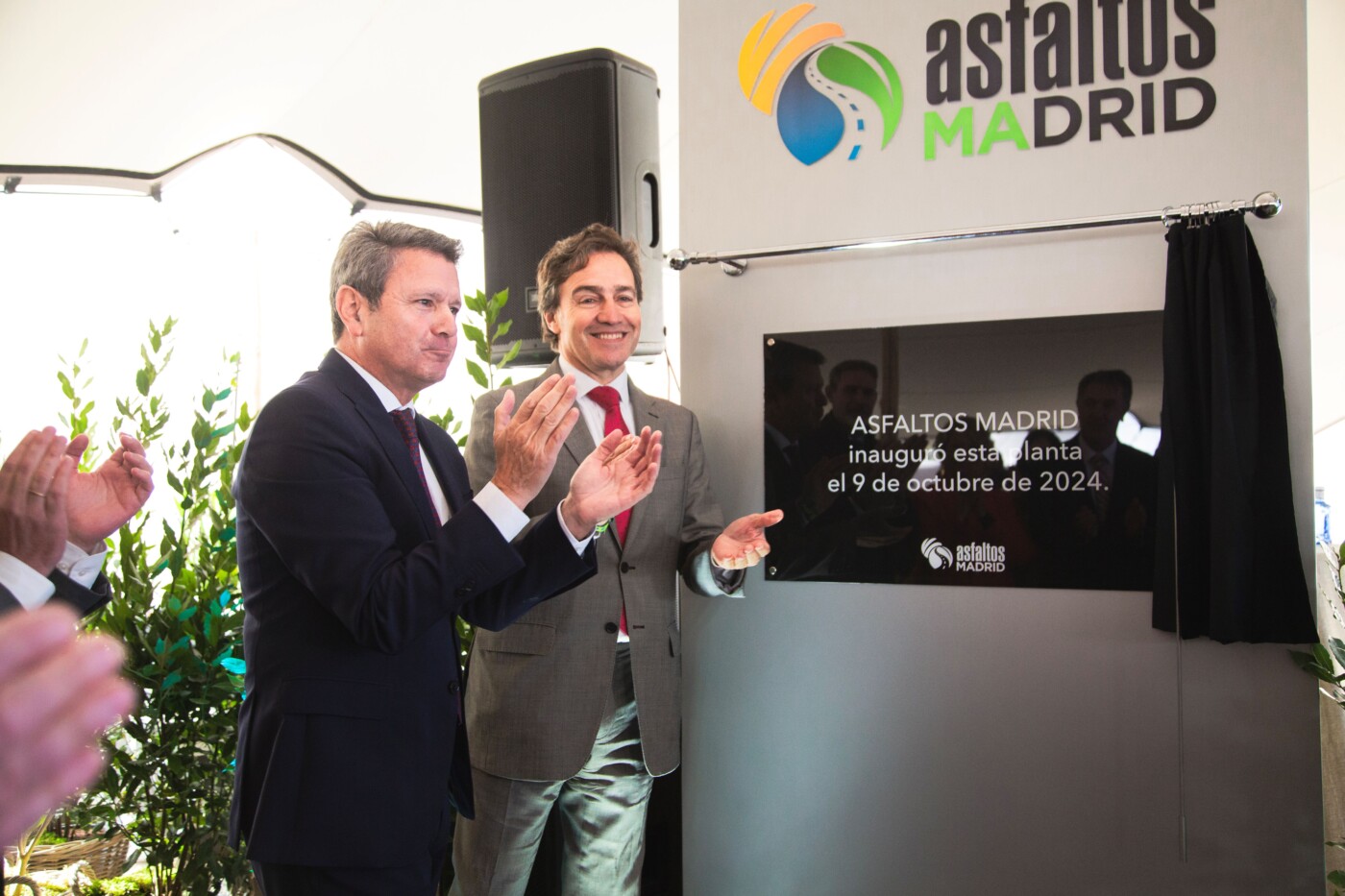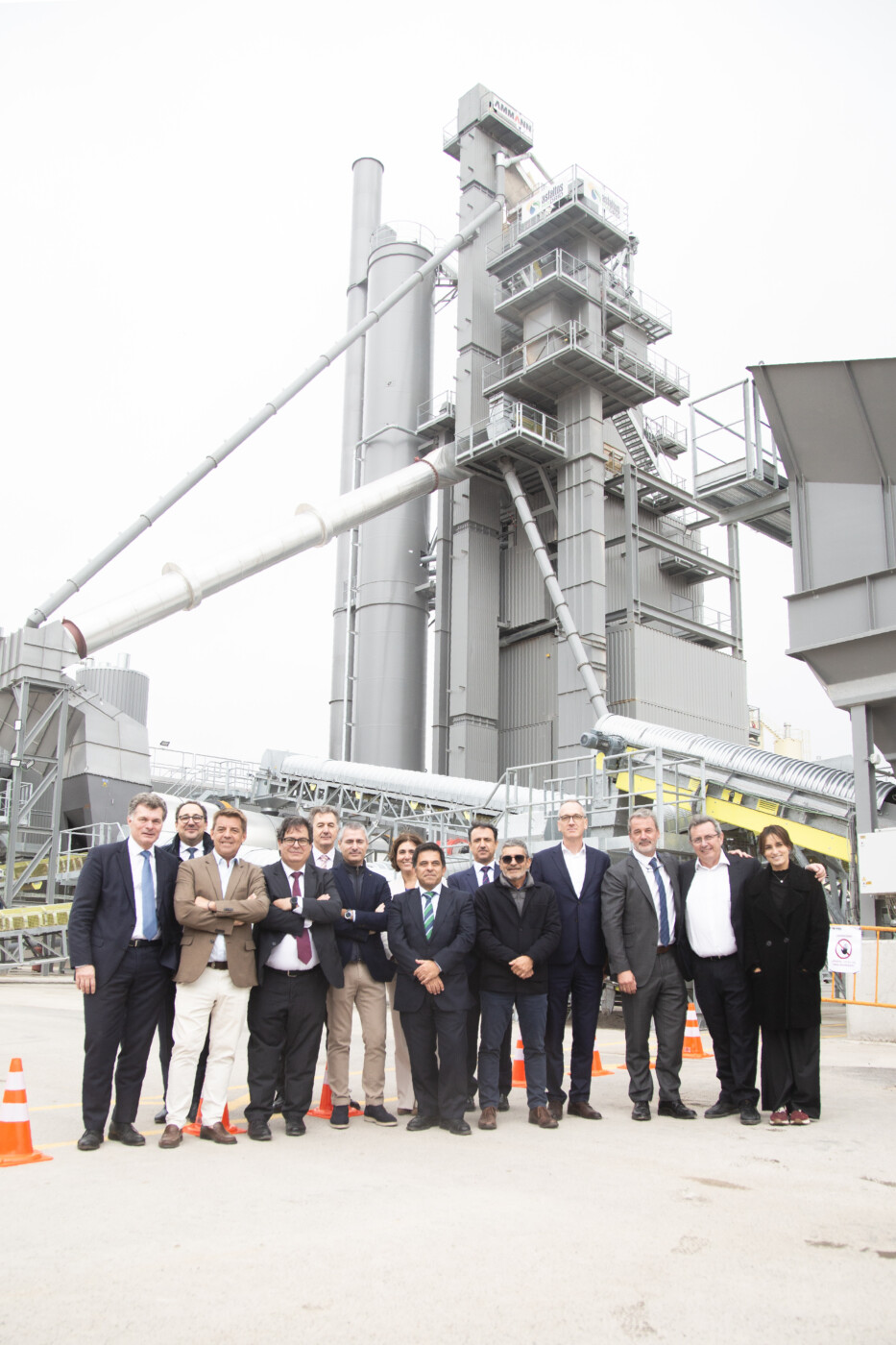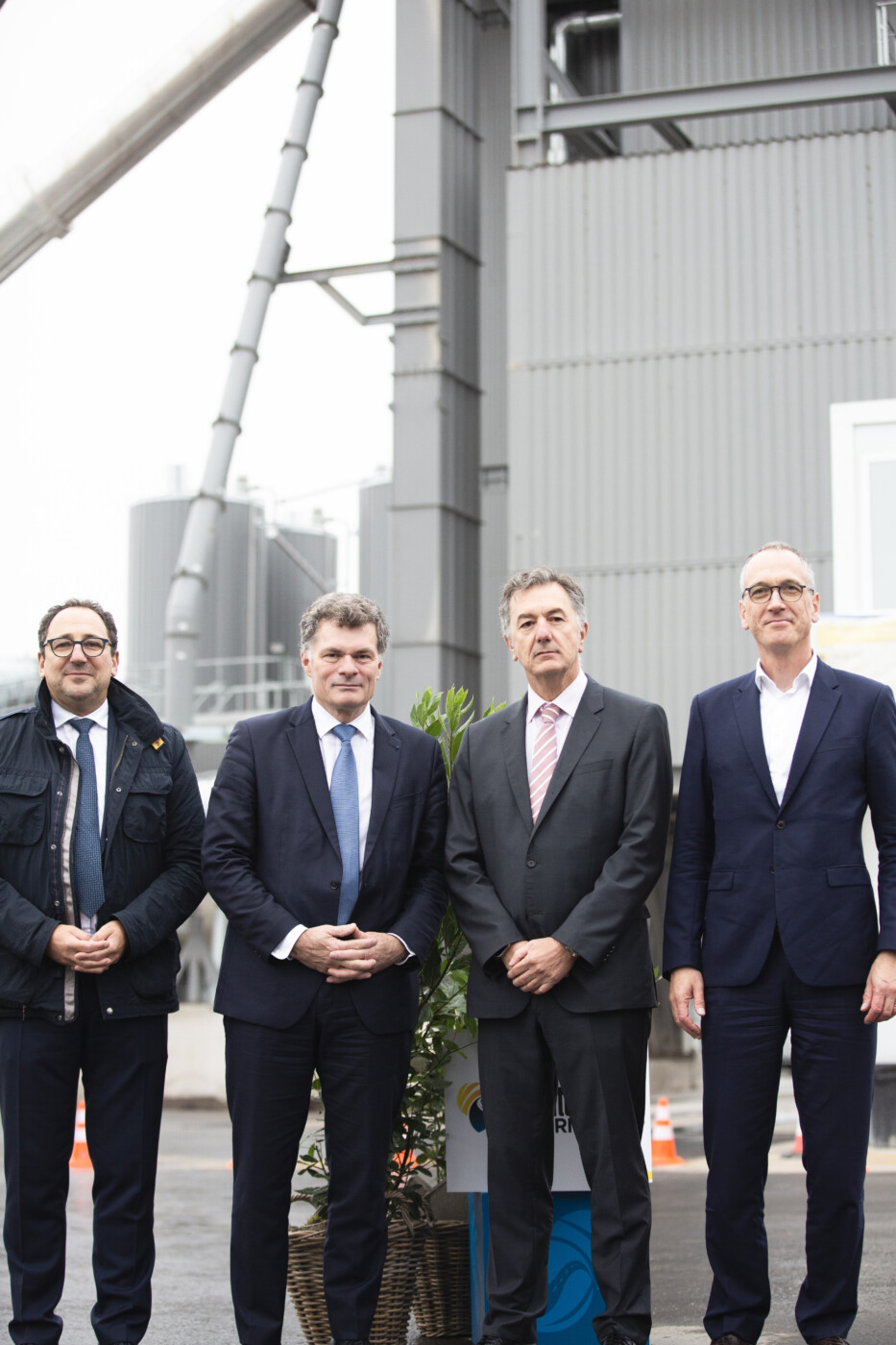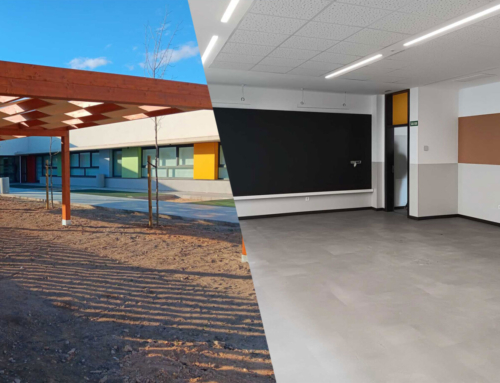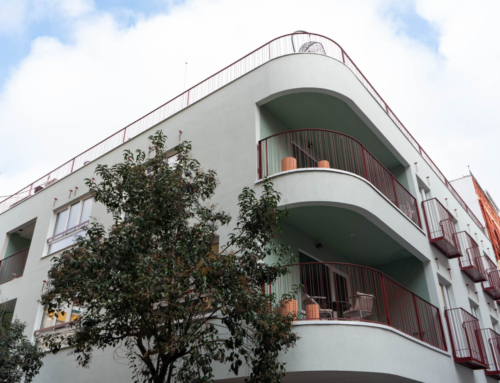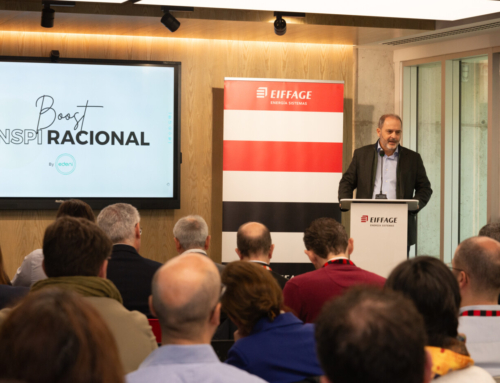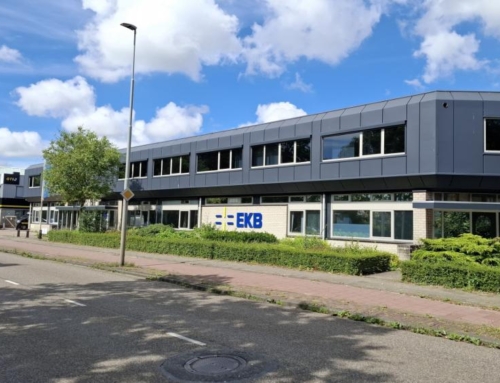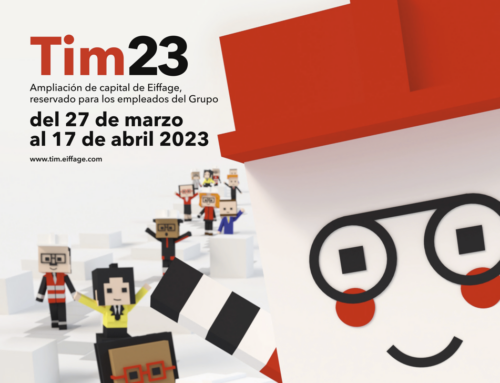Last week saw the inauguration of the most modern and sustainable asphalt plant in Spain, located in Vicálvaro, Madrid. This new facility, the result of a partnership between Eiffage Construction and Padecasa, has a recycling rate of up to 70% and reduces CO₂ emissions by more than 50%, marking a milestone in the development of sustainable infrastructure in Madrid.
The event was attended by Eiffage Chairman and CEO Benoît de Ruffray, Eiffage Route CEO Bruno Cahen and his deputy Pascal Cardon, Eiffage delegate in Spain and CEO of Eiffage Energía Sistemas José Manuel Martínez, Eiffage Construcción CEO Francisco González Torres, Eiffage Metal España CEO Abelardo Sánchez, and Eiffage Concessions CEO in Spain Juan Antonio Miquel Pérez.
The plant is not only a breakthrough in efficiency and productivity, but also sets a new standard in environmental responsibility.
Recycling system
One of the most outstanding features of this plant is its recycling system, designed to achieve recycling rates of 60%.
Compared to the modest 15% of the previous plant, this improvement will allow the reuse of milled aggregate from ageing pavements for Madrid’s asphalt pavement renewal operations. This not only reduces the consumption of natural resources such as aggregates and oil, but also eliminates 150,000 tonnes of extracted and transported aggregate, 2,250 tonnes of bitumen and 150,000 tonnes of millings that would otherwise go to landfill.
In addition, the use of high recycling rates will lead to significant savings in greenhouse gas emissions, estimated at 443 tonnes of CO2 per year.
Burner fuelled with natural gas
Another key environmental advance is the fuelling of the plant’s burner with natural gas instead of fuel oil. This modification will reduce direct greenhouse gas emissions by approximately 1.2 kg of CO2 per tonne produced, equivalent to an annual saving of 300 tonnes of CO2.
In addition, the plant is equipped with a bitumen foaming system that will allow better wrapping of the material mix, resulting in a significant reduction in the manufacturing temperature of the new mix, thereby reducing CO2 emissions by around 9.5%.
55% reduction in greenhouse gas emissions
These improvements represent a 55% reduction in greenhouse gas emissions per year, which is in line with the reduction targets set for the European Union (a 40% reduction compared to 1994 by 2030).
The new Vicálvaro chipboard plant not only marks a breakthrough in terms of efficiency and productivity, but also sets a higher standard in terms of environmental sustainability for the industry.
